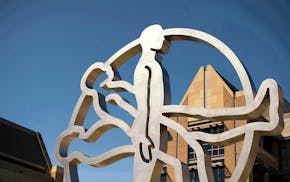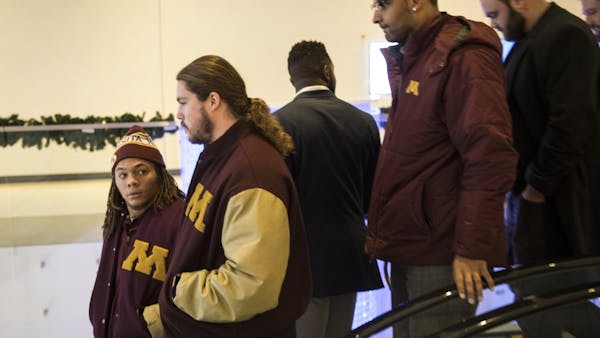The threatened boycott of a bowl game by the University of Minnesota football team poses little financial downside for the school, which tends to spend nearly as much on bowl games as it gets from playing in them.
The U typically incurs expenses of about $1.6 million to $1.8 million to participate in bowl games. In 2012, it netted about $328,000 from the Meineke Car Care Bowl. It netted $187,000 in 2013 from playing in the Texas Bowl and $360,000 from the 2014 Citrus Bowl.
While a bonus to the U, it is a relatively small one for an athletic program with an annual budget exceeding $70 million that chronically runs a deficit of several million dollars.
Wright Waters, executive director of the Football Bowl Association, said it is unclear whether the Gophers would face any other penalties by not participating in the Dec. 27 Holiday Bowl in San Diego. "This is all such new territory, I'm not sure if anyone knows the answer to that," he said.
The possibility of backing out of a bowl game appears to be unprecedented. The University of Missouri announced in the middle of the 2015 season that it would not accept bowl invitations, but Waters said he can't recall a time that a team withdrew from a bowl game after agreeing to attend.
Bowl organizers pay the conferences, the Big Ten in Minnesota's case, for a team's participation. The conferences then repay the participating university for travel and other costs. But typically, the payout from a bowl more than covers expenses.
The Big Ten pools leftover money from bowl payout and shares it among the 14 universities in the conference.
Last year, the Football Bowl Association reported a total payout of $609 million to U.S. universities for all football bowl games. The Holiday Bowl paid out $2.8 million each to the two schools, the University of Wisconsin and University of Southern California, that met in its 2015 game.
The NCAA doesn't punish teams for backing out of bowl games, said Christopher Radford, NCAA's associate director of public and media relations.
But if the Gophers back out of the Holiday Bowl, it could mean lower positive economic impact for the San Diego area, said Carl Winston, program director of the Payne School of Hospitality and Tourism Management at San Diego State University. "I wouldn't be surprised if it was in the millions of dollars of less [economic] impact," Winston said.
Kristen Leigh Painter • 612-673-4767
Nicole Norfleet • 612-673-4495

Blue Cross of Minnesota to pay $71M as part of nationwide antitrust settlement
A Minnesota eye on extravagant Berkshire Hathaway annual meeting in Omaha
Ramstad: This could be the week the NCAA becomes a professional league

Minnesota's medtech workforce has grown older. A Medtronic program may unleash Gen Z.

